Indigenous Governance Database
Honoring Nations Reports
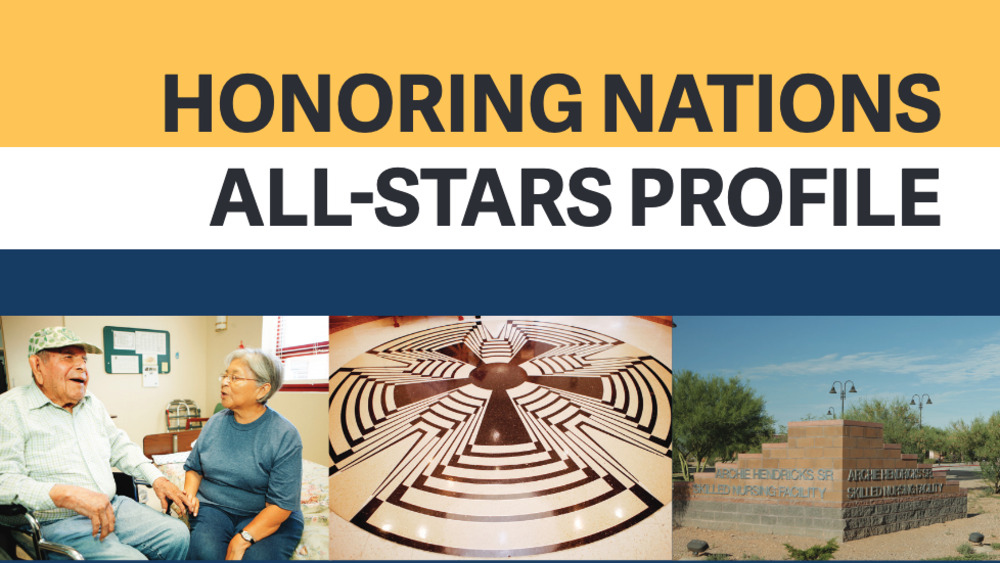
Honoring Nations All-Stars Profile: Tohono O’odham Nursing Care Authority
For many years, due to the Tohono O’odham Nation’s location in the Sonoran Desert of Arizona and the sparse population, Nation members did not have ac-cess to reservation-based long-term or post-hospital care services. This was particularly true for O’odham elders. Elders admitted to the Sells Area…
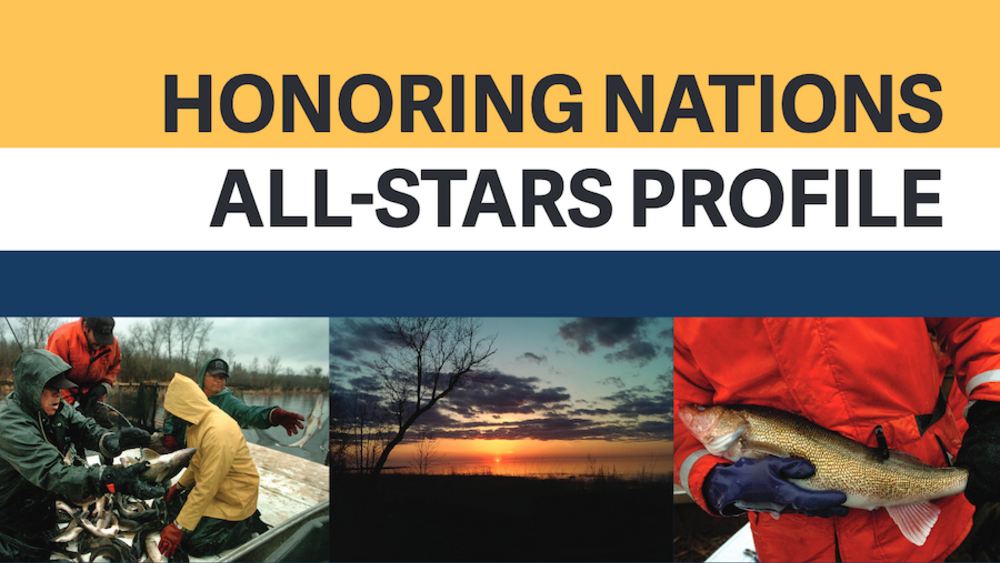
Honoring Nations All-Stars Profile: The Red Lake Walleye Recovery Program
In 1997, the members of the Red Lake Fisheries Association (RLFA), a cooperative established by com-mercial fishermen from the Red Lake Nation,1 voted to discontinue all commercial gillnet fishing on Red Lake for the upcoming season. An overwhelming majority of the RLFA’s members supported the…
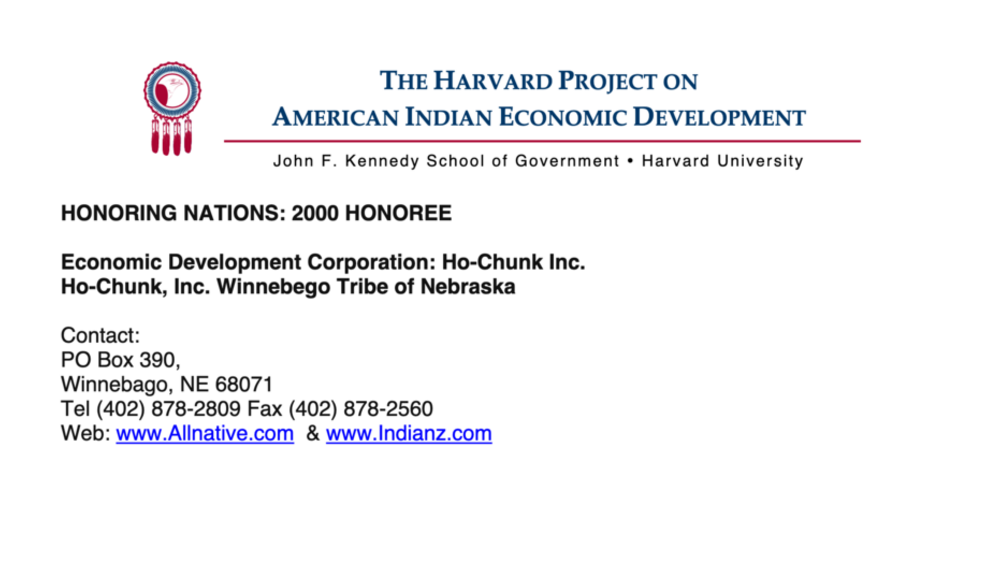
Economic Development Corporation: Ho-Chunk, Inc. Winnebego Tribe of Nebraska
Chartered under the laws of the Winnebago Tribe and wholly owned by the Tribe, Ho-Chunk, Inc. was launched in 1994 to diversify the Tribe’s business interests while maintaining a separation between business and tribal government. The general purpose company promotes economic self-sufficiency and…
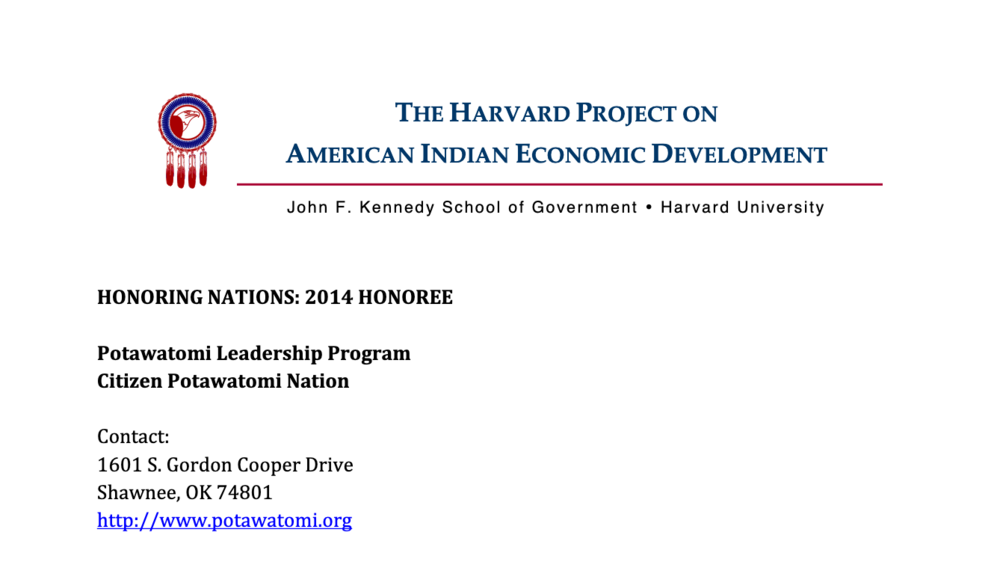
Potawatomi Leadership Program
Proud of the increasing number of citizens pursuing college degrees, the Citizen Potawatomi Nation (CPN) leaders became concerned that their talented students were not getting enough education in what it means to be Citizen Potawatomi. To nurture the nations’ future political leadership, the tribe…
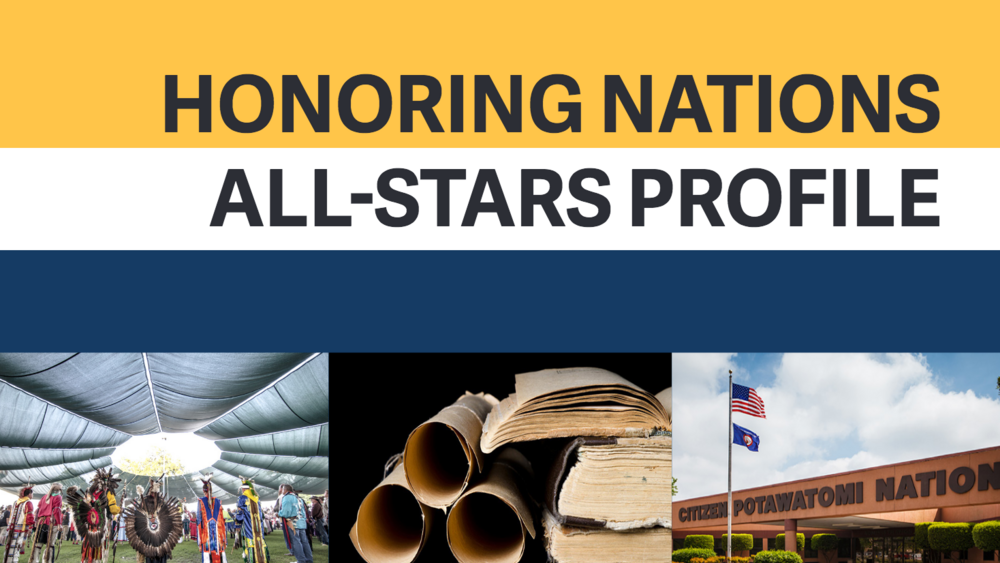
Honoring Nations All-Stars Profile: Constitutional Reform Citizen Potawatomi Nation
Forced relocations, loss of lands, and the economic necessity of moving away from home and community are common histories in Indian Country. Yet, despite these tragic circumstances, tribes continue to assert their sovereignty in order to improve the lives of their people. One of these remarkable…
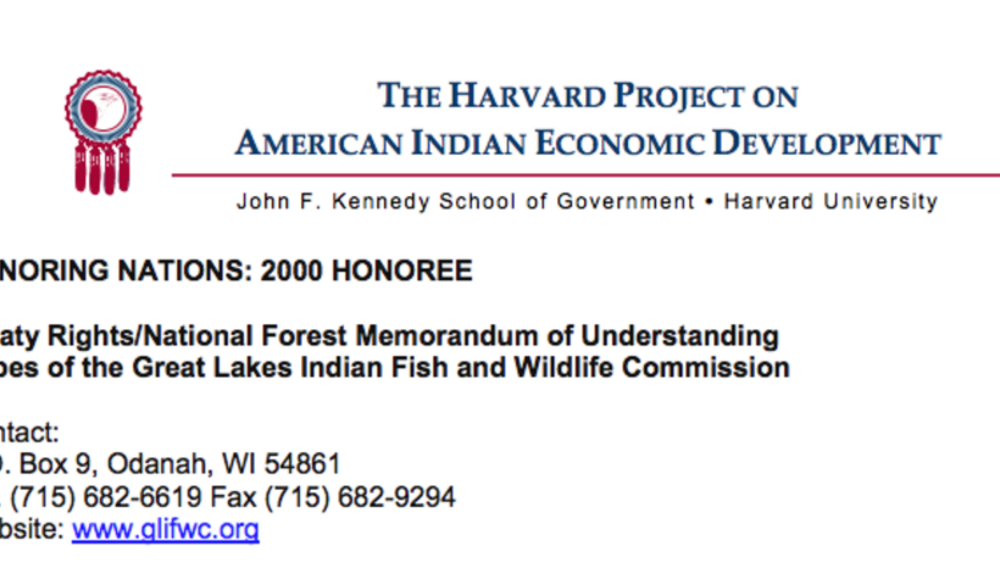
Treaty Rights/National Forest Memorandum of Understanding, Tribes of the Great Lakes Indian Fish and Wildlife Commission
The Great Lakes Indian Fish and Wildlife Commission, a tribally chartered intertribal organization, negotiated a memorandum of understanding (MOU) with the U.S. Forest Service that recognizes and implements treaty guaranteed hunting, fishing and gathering rights under tribal regulations and…
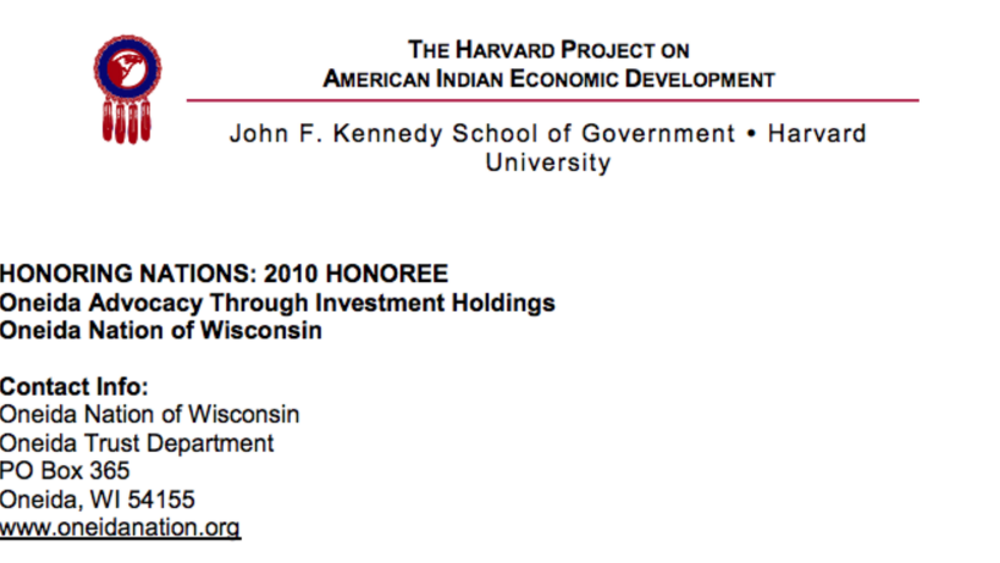
Oneida Advocacy Through Investment Holdings
Thirty years ago, most Native nations in the U.S. had few financial resources available for investment. With the passage of the Indian Self-Determination and Education Assistance Act (Public Law 93-638) in 1975, many tribes began to reclaim the governance of their nations – and with such assertions…
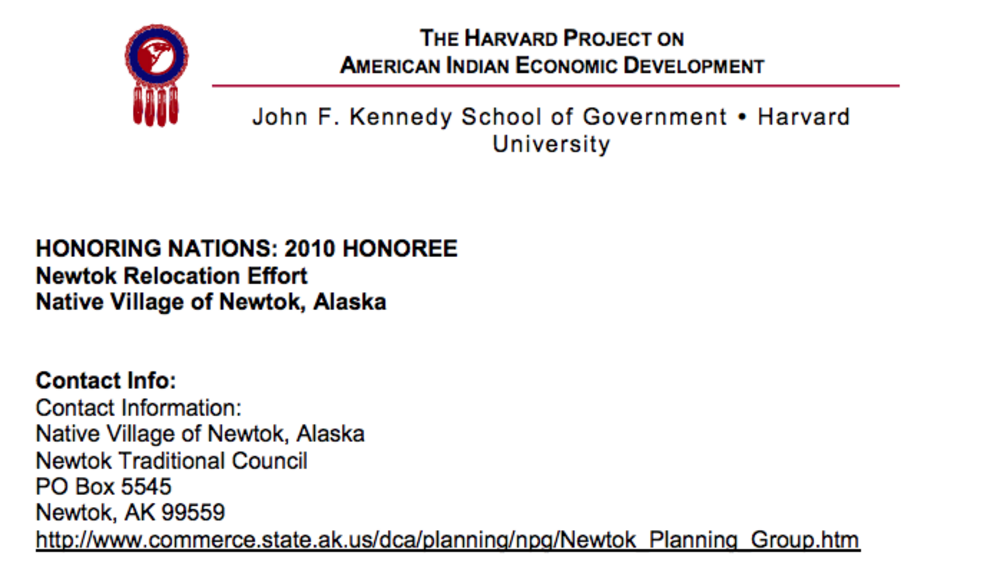
Newtok Relocation Effort
Scientists and politicians spend hours debating the facts of climate change, but in many places damaging changes to the local environment are already a reality. In the past decade, more and more human settlements have been threatened by catastrophic flooding, wildfires, or drought caused by…
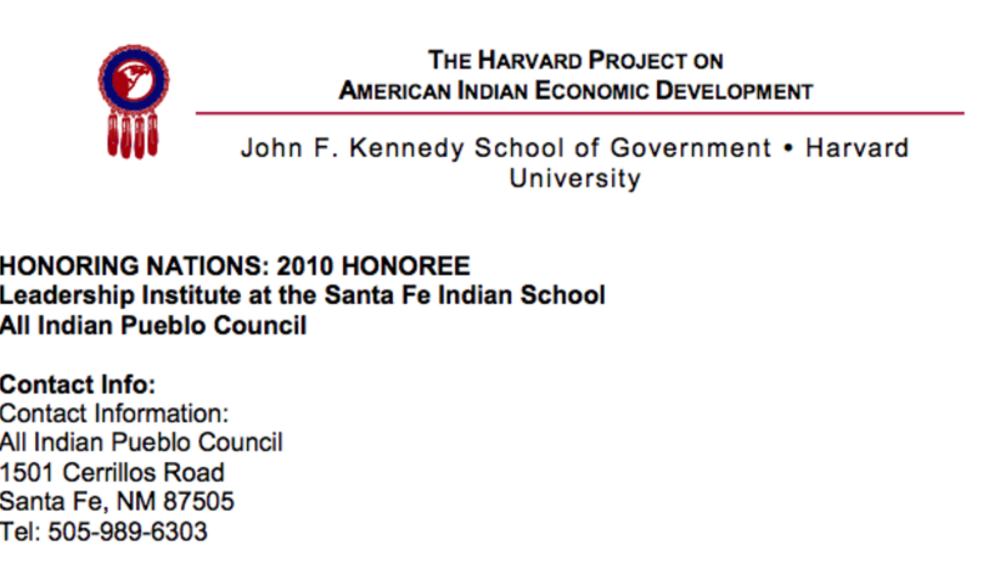
Leadership Institute at the Santa Fe Indian School
Founded in 1997, the Leadership Institute at the Santa Fe Indian School aims to create a dynamic learning environment in which community members not only learn and teach, but are able to actively contribute to the success of their nations. Four themes guide the Institute’s work: leadership,…
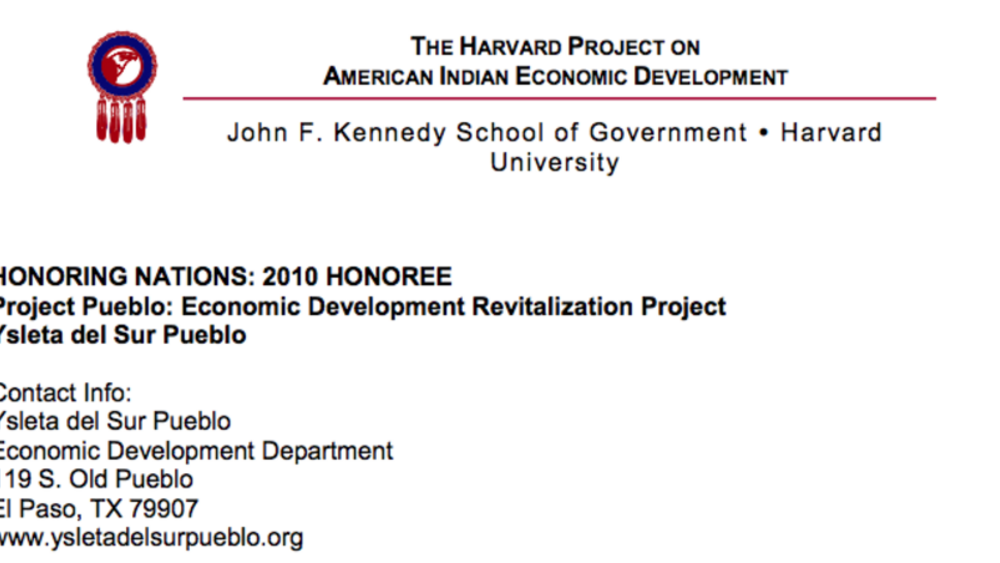
Project Pueblo: Economic Development Revitalization Project
A strong economy is one of the foundations of a healthy community. Native nations use business profits and tax revenues to invest in areas such as health, education, culture, and public safety programs to meet the needs of tribal citizens. At the Ysleta del Sur Pueblo, a sudden economic decline in…
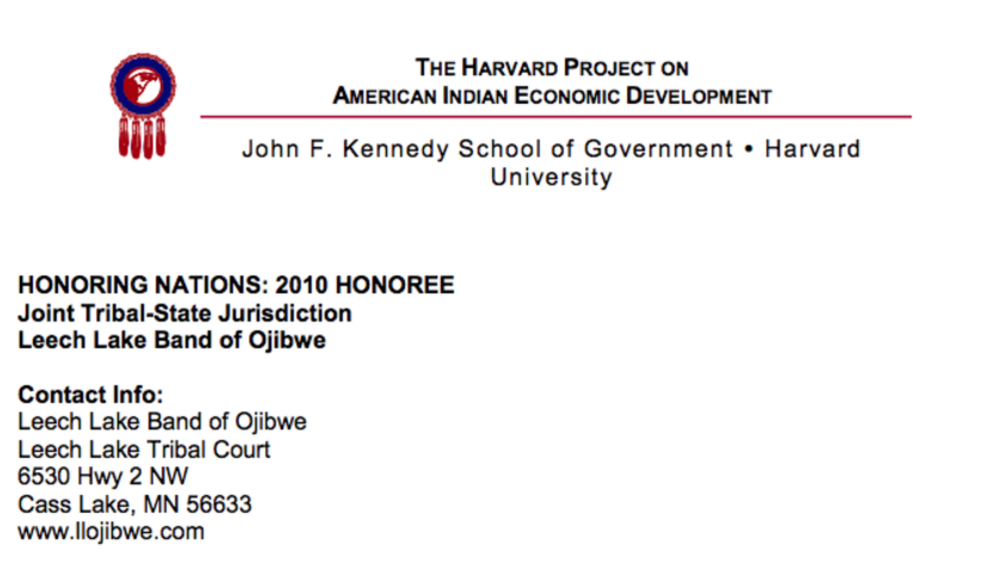
Leech Lake Joint Tribal-State Jurisdiction
Across Indian Country tribes are strengthening and better defining their governments in order to meet the unique needs of their communities. As Native nations work to expand their sovereign powers, tribal justice departments can play a critical role in achieving those goals. In the early 2000s, the…
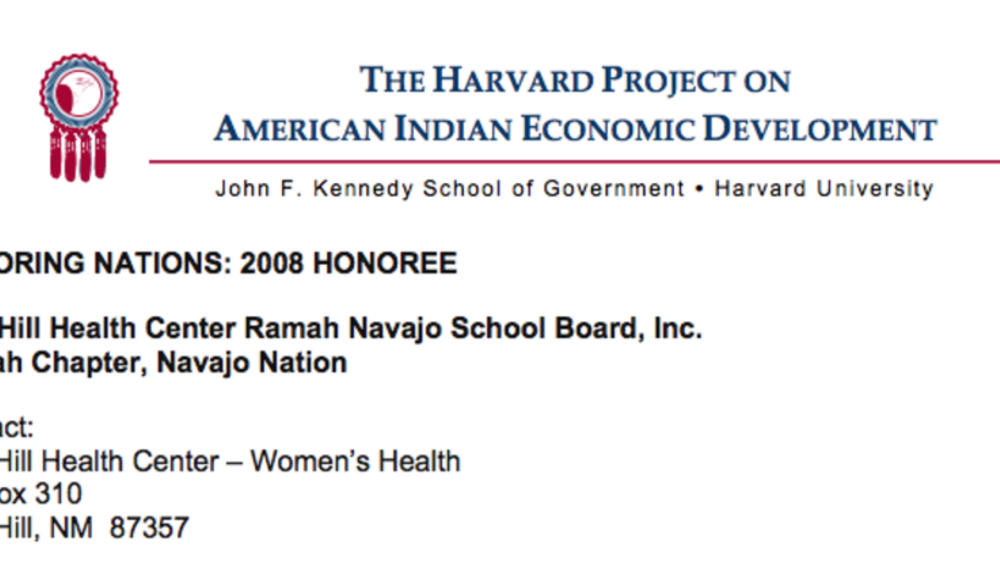
Navajo's Pine Hill Health Center
In the Ramah Chapter of the Navajo Nation–as in many parts of Indian Country–late detection of breast cancer leads to disproportionally high rates of breast cancer mortality. Ramah Navajo’s Pine Hill Health Center devised a creative response: it launched a series of "Mammo Days," educational and…
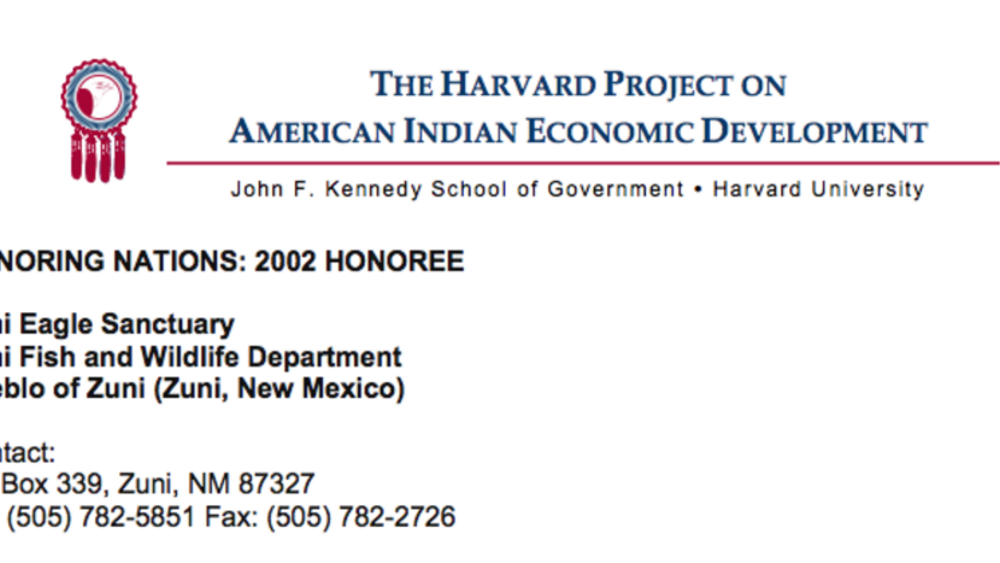
Zuni Eagle Sanctuary
Responding to ceremonial needs for eagle feathers, in 1999, the Pueblo opened the first-ever Native American owned and operated eagle sanctuary. The award-winning facility provides a source of molted eagle feathers for Zuni while at the same time reviving the ancient practice of eagle husbandry.…
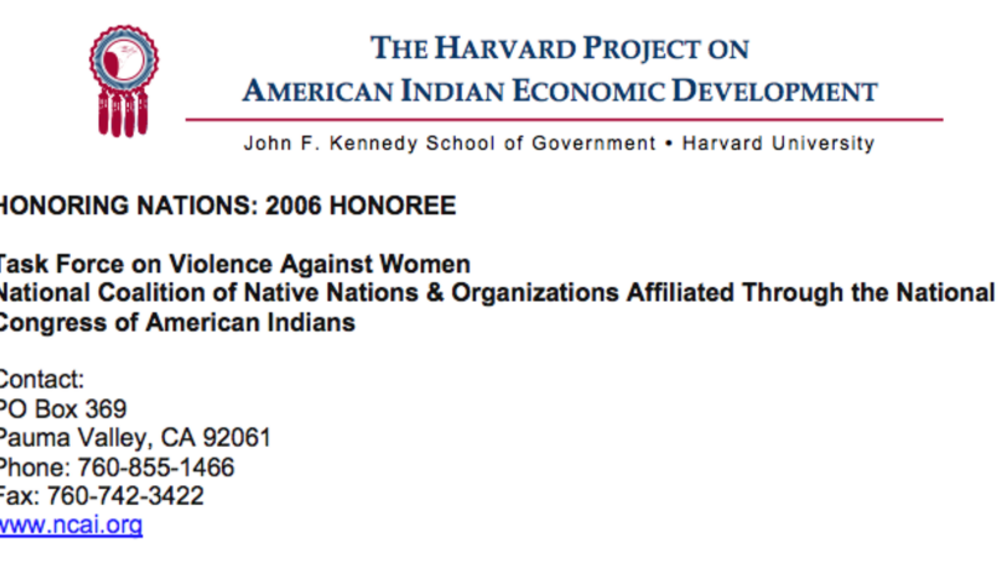
NCAI Task Force on Violence Against Women
Recognizing and acting upon the belief that safety for Native women rests at the heart of sovereignty, leadership from Native nations joined with grassroots coalitions and organizations to create an ongoing national movement educating Congress on the need for enhancing the safety of Native women.…
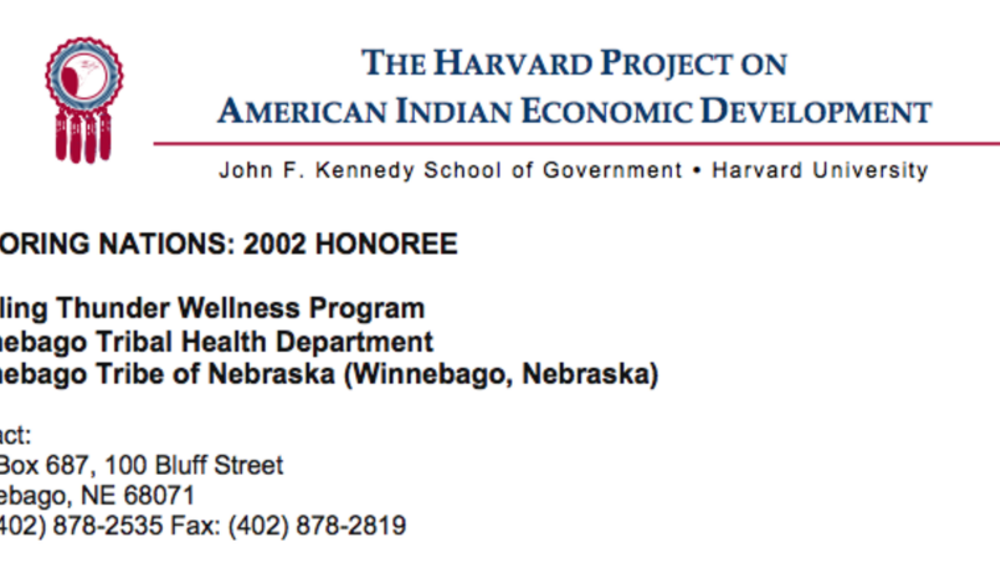
Winnebago's Whirling Thunder Wellness Program
To prevent and control the devastating effects of diabetes and substance abuse, in 1995, the Winnebago Tribe created the Whirling Thunder Wellness Program, which raises community awareness about diabetes and substance abuse, administers primary and secondary prevention services, and encourages…
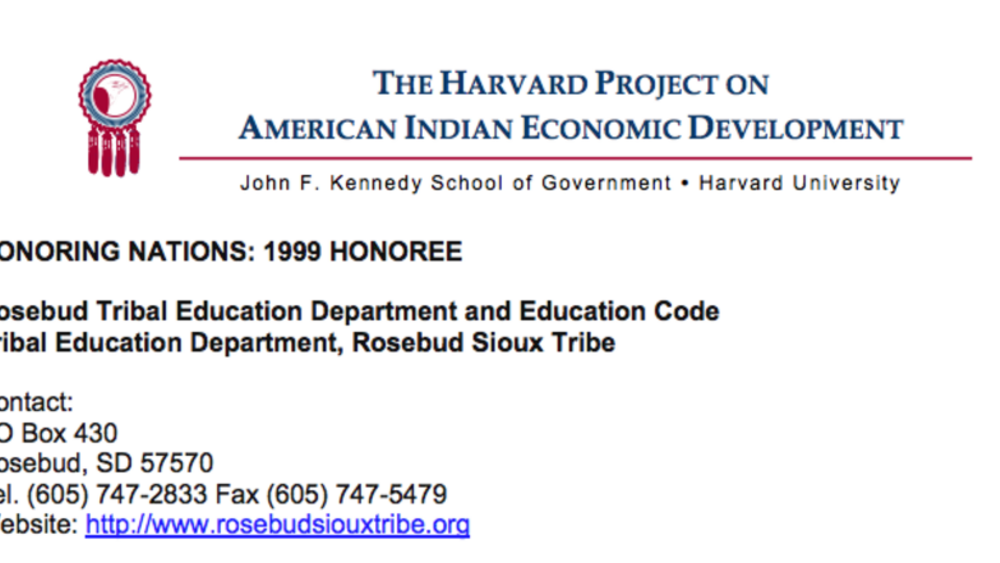
Rosebud Sioux Tribal Education Department and Code
Responding to disproportionately low academic attendance, achievement, and attainment levels, the Tribe created an education department (TED) in 1990 and developed a Code that regulates and coordinates various aspects of the tribal schools, public schools, and federally-funded Indian education…
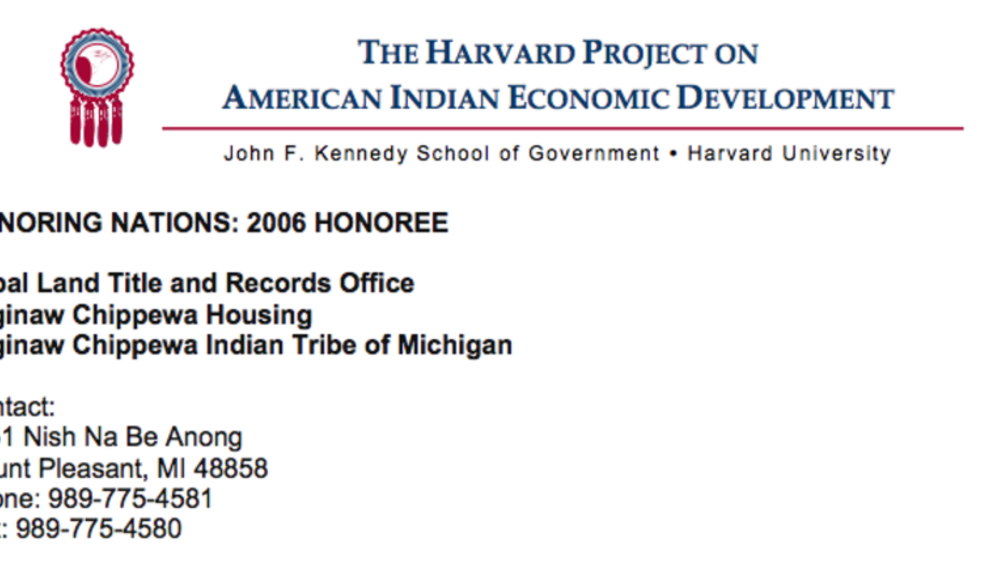
Saginaw Chippewa Tribal Land Title and Records Office
With the ultimate goal of seeing a time when Native people and nations once again own and manage the land within the boundaries of every reservation as well as those lands that are culturally important to them beyond reservations, the Tribal Land Title and Records Office keeps all records and…
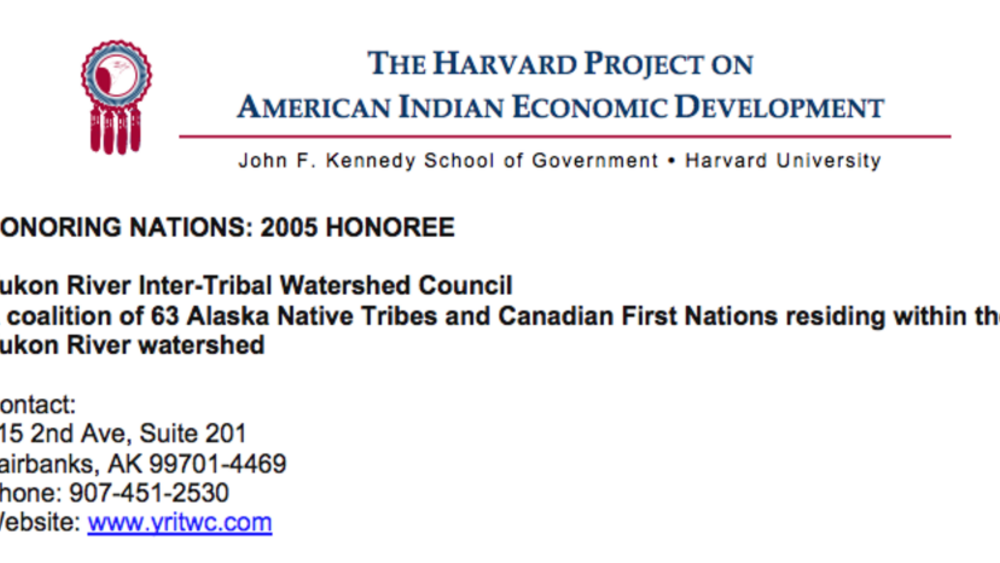
Yukon River Inter-Tribal Watershed Council
The Yukon River runs for 2,300 miles across the northwestern corner of North America. Many generations of Native people have drawn on its waters for food, drink, and other necessities. Recent development and changes in land use have affected the quality of Yukon River water. In 1997, chiefs and…
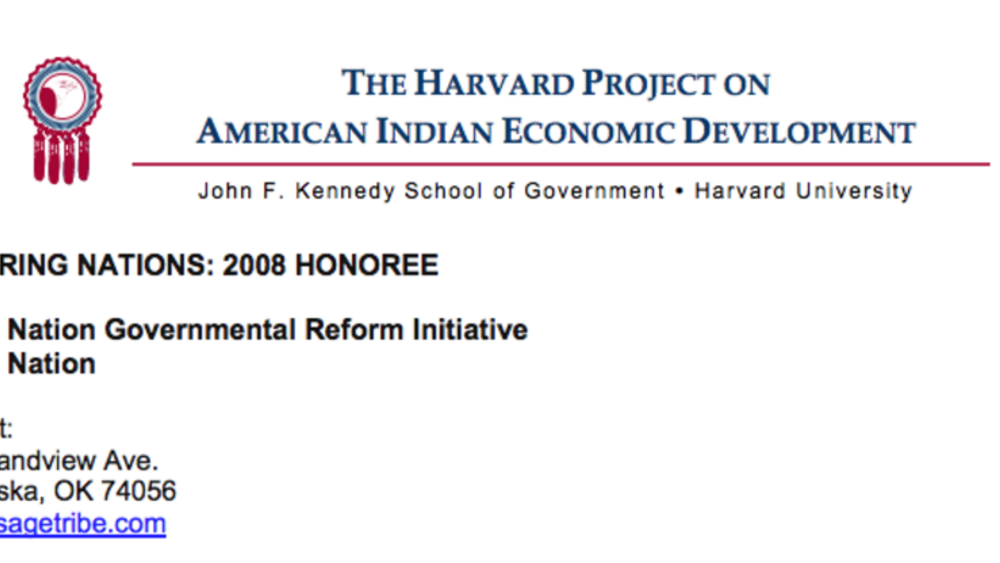
Osage Nation Governmental Reform Initiative
At the turn of the 20th century, the US government abolished the 1881 Osage Nation Constitution and imposed rules for land ownership and citizenship. Many Osage citizens were disenfranchised and the Tribal Council was granted only limited powers, which lead to years of weak government, corruption,…
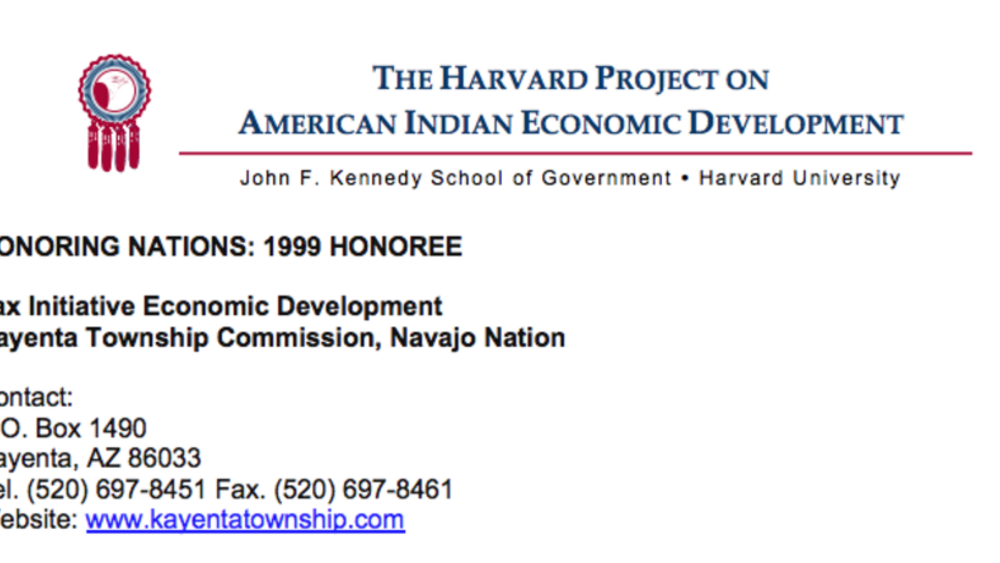
Kayenta Township Tax Initiative for Economic Development
In 1997, Kayenta became the first township on the Navajo Nation to take advantage of new opportunities for local governmental authority by implementing a 2.5% retail tax that brings in hundreds of thousands of dollars annually. This revenue has enabled the Township to build a solid waste transfer…
